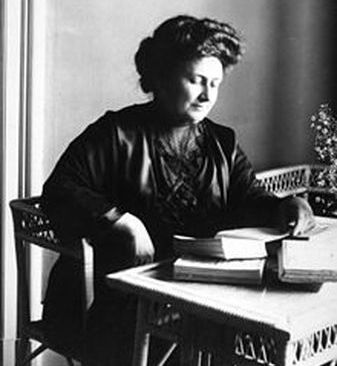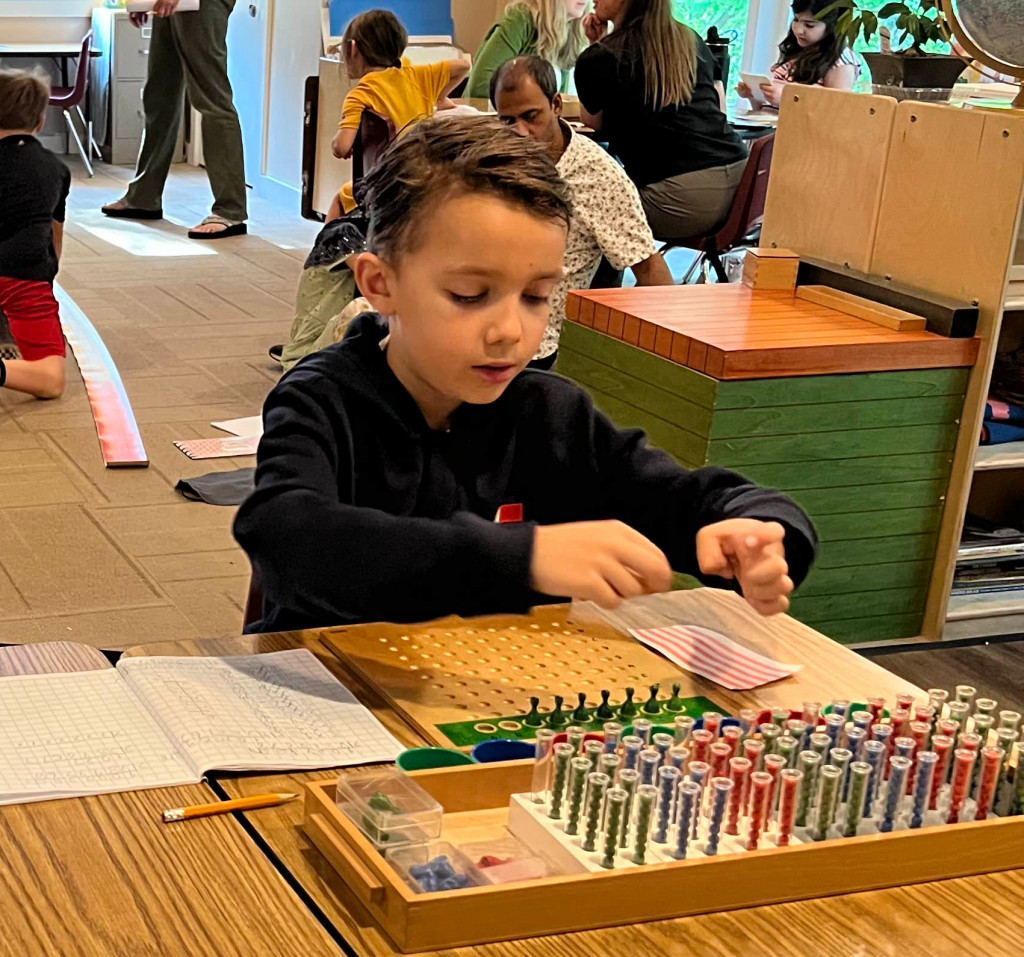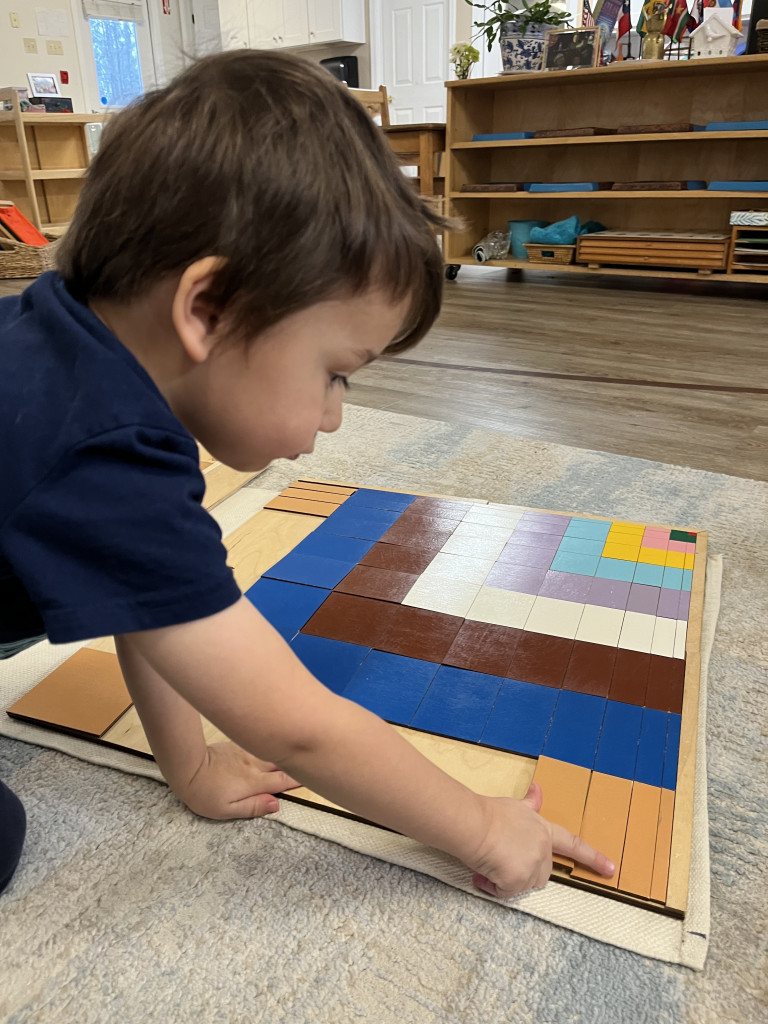Montessori Guides Children to a Lifelong Love of Learning

Montessori education is named for the Italian physician, Maria Montessori, who formulated the educational theory and method based on scientific research and keen observation of the child. Dr. Montessori designed an extensive assortment of concrete multi-sensory materials with which to implement her program. She first employed her program (often referred to as the Montessori Method) in the slums of Rome in 1907, where she won worldwide acclaim for her extraordinary accomplishments.She later developed an extensive training program for teachers which demonstrated the use of her materials and related that use to the child’s development.
The Impact of a Montessori Education
Research indicates achievement rates of children educated using Montessori methods are two to three times those of their peers. They also exhibit an increase in higher cognitive skills and interpersonal skills.
The latest research on brain development reveals the brain is not fully formed until age 16. Researchers suggest appropriate early stimulation can raise intellectual functioning, as measured by I.Q. scores, by as much as 20 percent.
Montessori education capitalizes on the important early years by introducing meaningful learning experiences that positively impact brain development and thereby have a lasting effect. Successful completion of the Montessori Primary program amply prepares the child for the challenges ahead in first grade and beyond.
The Elementary curriculum encompasses all subjects – language, mathematics, geometry, botany, zoology, geography, the physical sciences, and the arts — in lessons that allow for open-ended, unlimited exploration in areas of specific interest to the child.


